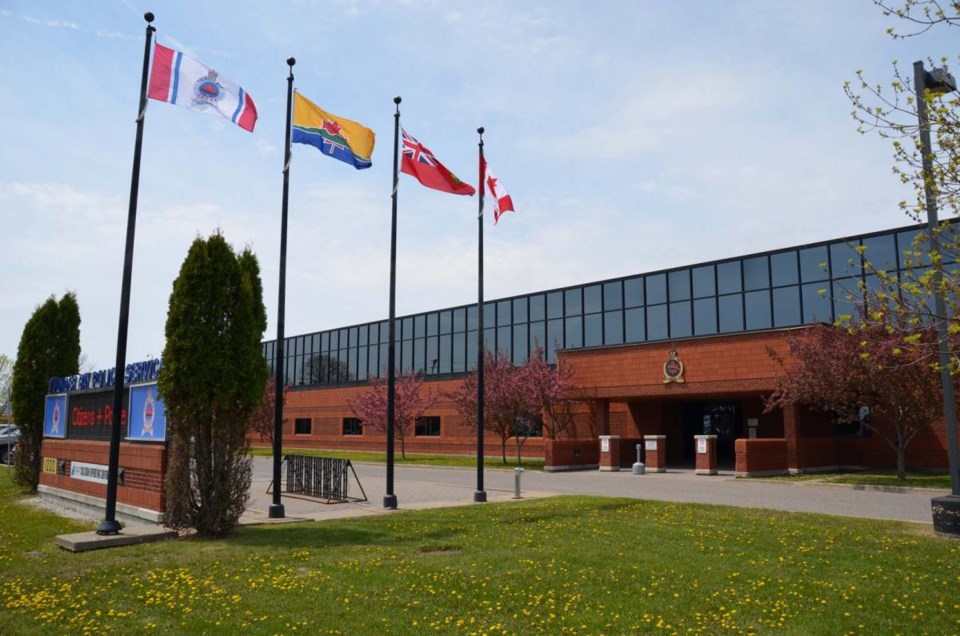THUNDER BAY - The number of calls for service received by the Thunder Bay Police Service continues to climb, including mental health calls, though a new pilot will see more crisis workers available to assist police.
According to the 2019 annual report presented to the Thunder Bay Police Services Board on Tuesday, in 2019, the Thunder Bay Police Service received 54,464 calls for service compared to 51,411 in 2018, a six per cent increase.
“It’s increasing at an alarming rate,” said Thunder Bay Police Services Board chair, Georjann Morriseau. “It’s why we continue to stress the need for public support and funding to continue looking at proactive ways to address some of this call volume.”
The number of criminal code offenses increased by 14 per cent from 2018 to 2019 with police conducting a total of 9,772 criminal investigations in 2019.
Violent crime offences also increased last year, with 1,409 offences reported in 2019 compared to 1,296 in 2018.
The increase was due in large part to assault cases reported. In 2019 there were 918 level one assaults and 754 in 2018. Sexual assault and assault with a weapon saw a slight decrease from 2018 to 2019.
Police investigated six homicides in 2019 compared to eight in 2018, as well six attempted murder cases in 2019 and 10 in 2018.
Property crimes saw the most significant increase at 17 per cent and in 2019 there were 6,438 crimes against property reported and 5,525 in 2018.
The number of mental health related calls also continues to steadily climb. In 2019, police responded to 1,929 mental health calls, up from 1,690 in 2018 and in 2015 the total was 1,104.
“Our numbers are even higher in 2019 and projecting to be the same or even higher in 2020 for mental health calls for service,” said Police Chief Sylvie Hauth. “We spend a great deal of time as a policing service responding to mental health calls.”
In an effort to deal with the growing number of calls for service relating to mental health and substance use issues, the Thunder Bay Police Service partnered with the Canadian Mental Health Association and the Thunder Bay Regional Health Sciences Centre to create a joint mobile crisis response team pilot project in 2018.
The JMCRT paired police officers with crisis workers to respond to mental health and substance use related calls. The team operates between 2 p.m. and 2 a.m.
Hauth informed the board that she has been meeting with the Local Health Integration Network throughout the summer and it is committing to expanding the program with a new pilot project in January 2021.
Through the expansion, a crisis worker will be paired with an officer to respond to calls relating to mental health or substance use issues, as well as the two crisis workers responding between 2 p.m. and 2 a.m.
This will provide 24-hour a day access to a crisis worker to assist officers with responding to calls.
“Twenty-four/seven is something we have not seen in the operation of our joint mobile crisis team,” Hauth said. “Often times, in the other 12-hour period, we are dealing with the matter as a policing agency only and being redirected to the ER to deal with the case at hand.”
Initially Hauth had asked the LHIN to commit to a much larger project in the form of a crisis centre but it was unable to at this time.
“It’s a step in the right direction,” she said. “I think my frustrating part is that it’s taking so much time to get to this point.”
“Right now with the anticipation of this new pilot starting in the new year, it will ensure that we have dedicated officers. We have officers that are going to receive additional training in terms of mental health calls and they will have the added advantage of being paired with a crisis worker and working side by side.”
In 2019, of the 1,929 calls for service involving mental-health or substance use issues, the JMCRT was utilized 1,082 times.
